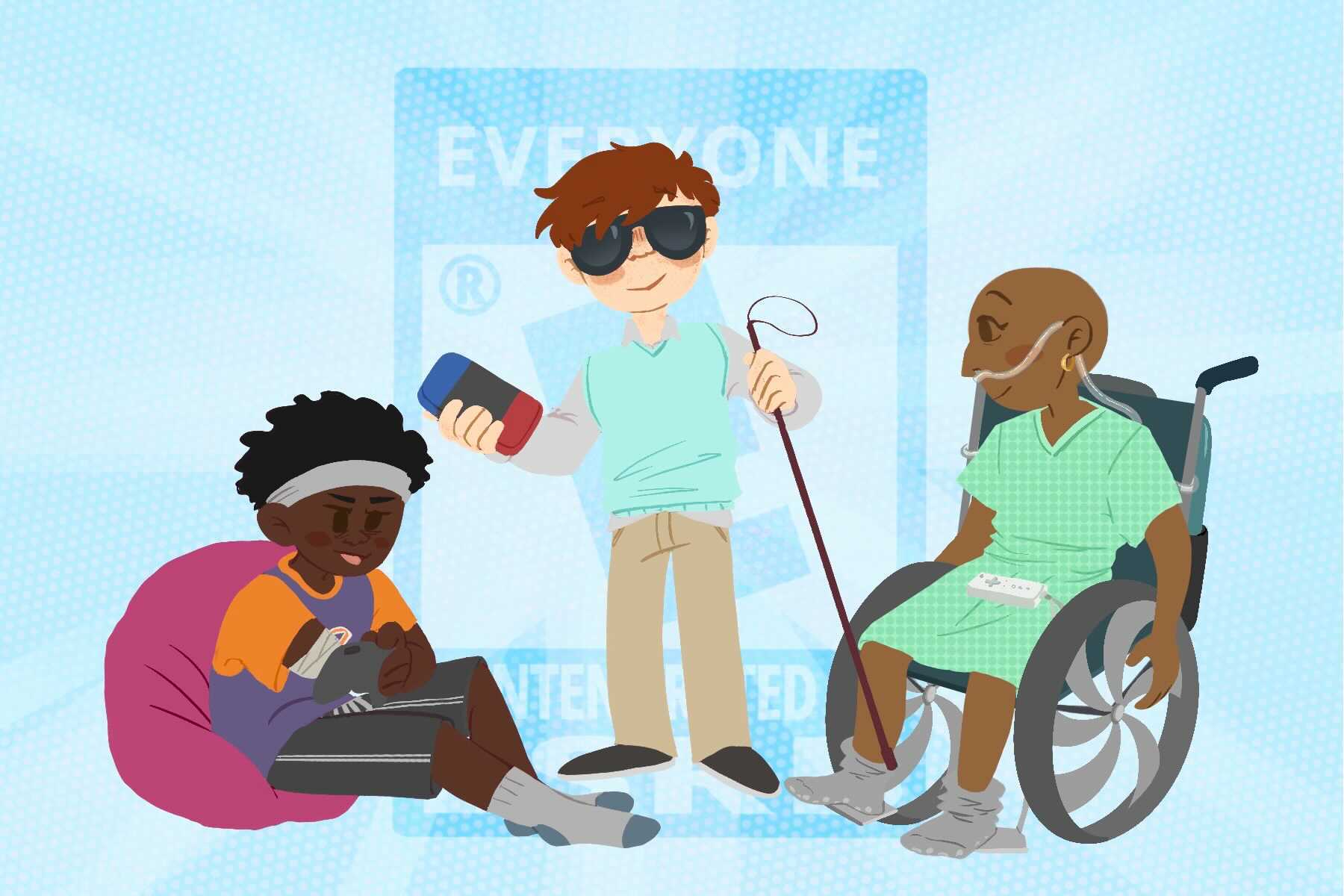Video games are becoming one of the biggest hobbies around the world right now. NPD reported that “three out of every four, or 244 million, people in the U.S. play video games.” The increased interest in video games due to the COVID-19 pandemic lockdown resulted in high growth for the industry. As video games become more popular, more people want to play them. But for some, playing a new video game is not as easy as just going to GameStop.
Players with disabilities aren’t adequately considered in the video game development process. With the 2019 Census reporting that 12.7% of people in the United States have a disability, there’s a big chunk of the population that’s being left out. Video games are known to improve one’s spatial reasoning, problem-solving and social skills — all abilities that can potentially benefit gamers with disabilities.
The online gaming community has watered down the request for more accessibility settings with the inclusion of an “easy mode” in games. This is a disrespectful minimization of what gamers with disabilities need and an ableist and discriminatory comment. Calling accessibility settings “easy mode” insinuates that those with disabilities are inferior to other gamers. The definition of a gamer has devolved to mean someone who pours hours and hours into mastering games considered difficult by the community. This definition is specifically flexible to allow gamers to discount anyone they want and continuously omits gamers with disabilities. Gamers with disabilities deserve to be considered in video game design, and they also deserve to be accepted by the gaming community — two things that don’t seem to be at the forefront of most game companies’ minds. However, many people outside of the video gaming industry are trying to help dismantle the barrier between people with disabilities and gaming.
For gamers with physical disabilities, gaming equipment can be difficult to use. Game settings such as autorun or full auto firing can help these players play games with more ease.
Different controllers exist for players with physical disabilities, like hardware engineer Ben Heck’s popular one-handed controllers. In an interview with video game accessibility specialist Ian Hamilton, he stated that Uncharted 4 had one-third of players using the one-handed play mode. There are more people positively affected by accessibility settings than the video game industry seems to think.
For gamers that are deaf or hard of hearing, subtitles and additional HUD accessibility settings can go a long way in heightening the gameplay experience. However, some are calling for a switch from subtitles to closed captioning. Closed captioning is the visual addition of non-dialogue noises like background sound effects and music, which can give extra context to players. Allowing players to see audio in the game visually is one of the best ways to bring accessibility to those that are deaf or hard of hearing. Even peripherals like the wearable SUBPAC can translate the sound in games into vibrations that the player can feel during gameplay.
Gamers with low vision have a hard time playing games since many video game worlds focus on visual feedback. However, recent games have been creating more curated experiences for players that rely on tactile or auditory feedback to help them along the way. A Blind Legend is one of the first games that features no video and uses binaural 3D audio to create a uniquely new type of game. Screen readers are slowly being added to games, with the emulator RetroArch being one of the first to add the feature.
Websites like Can I Play That? provide a resource for players with disabilities to find games with higher accessibility ratings. The site’s rating system lists criteria for different types of disabilities. Deaf and hard of hearing categories take into account visual representations of dialogue, sound and other types of cues. The mobility rating ranks game controls like the ability to toggle auto settings and the ability to personally remap button controls. The low vision and blind category rates games based on their nonvisual cues, assistive modes and text necessity. Gears of War 5 is one of the website’s highest-ranking titles, getting a perfect 10 out of 10 in its deaf accessibility rating and a 9.9 out of 10 in its mobility accessibility rating.
AbleGamers is a charity that focuses on teaching the industry about accessibility in gaming and creating solutions to help those with disabilities play games more comfortably. Through working with companies like Xbox and PlayStation, they’ve been able to engineer new gaming peripherals to assist with accessibility. They inspire gaming companies to include more diverse characters in their games and create gaming events that are accessible to people with disabilities. In addition to in-game barriers preventing a comfortable gaming experience, players with disabilities often face social isolation within the gaming community. Gaming conventions don’t always take accessibility into account, which can make it impossible for gamers with disabilities to connect with others. It can also be hard to find a welcoming online environment, but Ablegamers hosts streamers with disabilities on Twitch to help build a warm and inclusive community.
DAGERSystem — another website that rates the accessibility of video games — asserts that people with disabilities don’t want to elicit feelings of sympathy or pity. They simply want to be thought of, treated with respect and accepted into the gaming community. Many people turn to games to make friends and immerse themselves in a world different from the real world. Video game companies need to feel more pressure to add in these extra accessibility settings so everyone can play on an equal level. I truly cannot understand those with no need for extra accessibility getting so upset over these settings being added into games. Accessibility settings aren’t made to make the game easier to play; they’re made so that everyone can play.
















